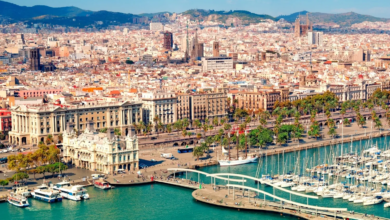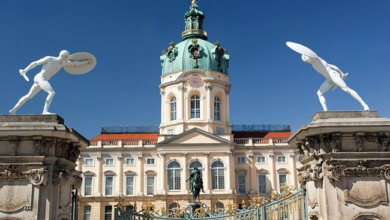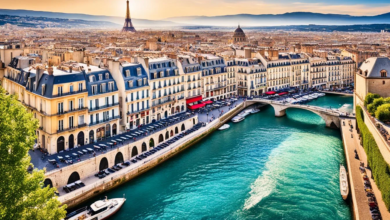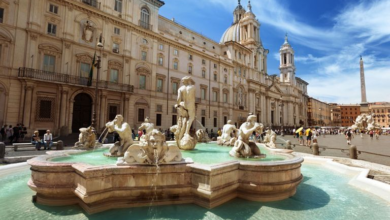The most important and best advice when traveling to Eritrea

traveling to Eritrea requires careful planning and preparation, but it can be a rewarding and unique travel experience. It’s important to be respectful of local customs, stay informed about security risks, and be prepared for limited infrastructure.
- Obtain necessary travel documents: Eritrea requires all visitors to have a visa, which can be obtained at Eritrean diplomatic missions abroad or upon arrival at the airport in Asmara. It’s important to have all necessary travel documents in order before your trip.
- Respect local customs: Eritrea is a conservative society with strong cultural and religious traditions. It’s important to dress modestly and show respect for local customs and traditions, particularly when visiting religious sites.
- Be aware of security risks: Eritrea has a history of political instability and military conflict, and there are ongoing security concerns. It’s important to stay informed about the current situation and to exercise caution, particularly in border areas and near military installations.
- Be prepared for limited infrastructure: Eritrea has limited infrastructure and resources, particularly outside of major cities. It’s important to be prepared for limited access to electricity, water, and medical care.
- Learn basic Tigrinya phrases: Tigrinya is the most commonly spoken language in Eritrea, and knowing some basic phrases can be helpful for communicating with locals. English is also widely spoken in urban areas.
- Explore the country’s natural and cultural attractions: Eritrea has a rich history and culture, with several historical sites and natural attractions to explore. Some popular destinations include the ancient city of Axum, the Dahlak Archipelago, and the Asmara Opera House.
If you’re planning to travel to Eritrea, here are some important tips to keep in mind:
here are some additional things to consider when traveling to Eritrea:
- Health Concerns: Eritrea has a high prevalence of malaria, so it’s important to take necessary precautions such as taking anti-malarial medication and using insect repellent. Other health concerns include tuberculosis and HIV/AIDS. It’s important to have comprehensive travel insurance that covers medical care.
- Transportation: Eritrea has limited transportation options, with most travel being done by car or bus. Roads are often in poor condition, and it’s important to use reputable transportation services and to be cautious when driving. There is also a railway that connects Asmara with the port city of Massawa.
- Food and Drink: Eritrean cuisine is influenced by Ethiopian, Italian, and Middle Eastern flavors, with popular dishes including injera (a sourdough flatbread) and tsebhi (a spicy stew). It’s important to be cautious with street food and to drink only bottled or purified water.
- Money Matters: The official currency of Eritrea is the nakfa, which is not widely available outside of the country. It’s important to exchange money at official exchange offices or banks, as street money changers may offer unfavorable rates. Credit cards are not widely accepted.
- Communication: Tigrinya is the most commonly spoken language in Eritrea, but there are also several other languages spoken throughout the country. English is widely spoken in urban areas. Internet access is limited and often unreliable.
- Photography: Eritrea offers many opportunities for photography, particularly of its ancient ruins and rugged landscapes. However, it’s important to be respectful of local customs and to ask permission before taking photos of people or religious sites.
traveling to Eritrea can be a challenging but rewarding experience. It’s important to be prepared for limited infrastructure, health concerns, and security risks, but also to take the time to explore the country’s rich culture and natural beauty.
Here are some additional things to consider when traveling to Eritrea:
- Climate and Weather: Eritrea has a hot and dry climate, with temperatures ranging from the high 70s to low 100s Fahrenheit (25 to 40 degrees Celsius) depending on the season and location. The rainy season runs from June to September, and it’s important to be prepared for sudden downpours and flash floods.
- Cultural and Historical Sites: Eritrea has a rich cultural and historical heritage, with several UNESCO World Heritage Sites including the ancient city of Aksum, the historic town of Asmara, and the ruins of Qohaito. It’s important to show respect for local customs and traditions when visiting these sites.
- Wildlife and Nature: Eritrea has a diverse wildlife and natural landscape, with several national parks and reserves including the Dahlak Archipelago National Park and the Gash-Barka Wildlife Reserve. Visitors can see a variety of wildlife including hyenas, antelopes, and birds.
- Festivals and Celebrations: Eritrea has several cultural festivals and celebrations throughout the year, including the Independence Day celebrations in May, the Festival Eritrea in August, and the Timkat (Epiphany) celebrations in January. These events are a great opportunity to experience local customs and traditions.
- Religion and Spirituality: Eritrea has a strong religious culture, with Christianity and Islam being the most widely practiced religions. It’s important to show respect for local customs and beliefs, particularly when visiting religious sites.
- Safety and Security: Eritrea has a relatively low crime rate, but there are ongoing security concerns related to government restrictions on freedom of speech and movement. It’s important to stay informed about the current situation and to exercise caution, particularly in border areas and near military installations.
Overall, traveling to Eritrea can be a unique and rewarding experience, with opportunities to explore the country’s rich cultural and natural heritage. It’s important to be prepared for the climate and weather, to show respect for local customs and traditions, and to stay informed about the current security situation.
Certainly! Here are some additional things to consider when traveling to Eritrea:
- Accommodation: Eritrea has a range of accommodation options, from budget guesthouses to more upscale hotels. It’s important to book ahead, particularly during peak travel seasons, and to choose accommodations with reliable amenities such as air conditioning and hot water.
- Transportation: Eritrea has limited transportation options, with most travel being done by car or bus. It’s important to use reputable transportation services and to be cautious when driving. Taxis and minibusses are available in major cities, but it’s important to negotiate fares in advance.
- Food and Drink: Eritrean cuisine is influenced by Ethiopian, Italian, and Middle Eastern flavors, with popular dishes including injera (a sourdough flatbread) and tsebhi (a spicy stew). It’s important to be cautious with street food and to drink only bottled or purified water.
- Money Matters: The official currency of Eritrea is the nakfa, which is not widely available outside of the country. It’s important to exchange money at official exchange offices or banks, as street money changers may offer unfavorable rates. Credit cards are not widely accepted.
- Communication: Tigrinya is the most commonly spoken language in Eritrea, but there are also several other languages spoken throughout the country. English is widely spoken in urban areas. Internet access is limited and often unreliable.
- Photography: Eritrea offers many opportunities for photography, particularly of its ancient ruins and rugged landscapes. However, it’s important to be respectful of local customs and to ask permission before taking photos of people or religious sites.
- Health Concerns: Eritrea has a high prevalence of malaria, so it’s important to take necessary precautions such as taking anti-malarial medication and using insect repellent. Other health concerns include tuberculosis and HIV/AIDS. It’s important to have comprehensive travel insurance that covers medical care.
traveling to Eritrea can be a unique and rewarding experience, with opportunities to explore the country’s rich cultural and natural heritage. It’s important to be prepared for the climate and weather, to show respect for local customs and traditions, and to stay informed about the current security situation.
here are some additional things to consider when traveling to Eritrea:
- Dress Code: Eritrea is a conservative society, and it’s important to dress modestly and respectfully, particularly when visiting religious sites. Women should avoid wearing revealing clothing such as shorts or tank tops, and both men and women should avoid wearing clothing with offensive slogans or graphics.
- Language: Tigrinya is the most commonly spoken language in Eritrea, but there are also several other languages spoken throughout the country. English is widely spoken in urban areas and tourist destinations, but it’s a good idea to learn some basic Tigrinya phrases to communicate with locals.
- Cultural Etiquette: Eritrea has a unique cultural heritage, and it’s important to show respect for local customs and traditions. For example, it’s customary to remove your shoes before entering a home or religious site, and it’s considered impolite to eat or drink in public during Ramadan.
- Wildlife and Nature: Eritrea has a diverse wildlife and natural landscape, with several national parks and reserves including the Dahlak Archipelago National Park and the Gash-Barka Wildlife Reserve. Visitors can see a variety of wildlife including hyenas, antelopes, and birds.
- Photography: Eritrea offers many opportunities for photography, particularly of its ancient ruins and rugged landscapes. However, it’s important to be respectful of local customs and to ask permission before taking photos of people or religious sites.
- Safety and Security: Eritrea has a relatively low crime rate, but there are ongoing security concerns related to government restrictions on freedom of speech and movement. It’s important to stay informed about the current situation and to exercise caution, particularly in border areas and near military installations.
, traveling to Eritrea can be a unique and rewarding experience, with opportunities to explore the country’s rich cultural and natural heritage. It’s important to show respect for local customs and traditions, be prepared for the climate and weather, and to stay informed about the current security situation.
here are some additional things to consider when traveling to Eritrea:
- Festivals and Celebrations: Eritrea has several cultural festivals and celebrations throughout the year, including the Independence Day celebrations in May, the Festival Eritrea in August, and the Timkat (Epiphany) celebrations in January. These events are a great opportunity to experience local customs and traditions.
- Religion and Spirituality: Eritrea has a strong religious culture, with Christianity and Islam being the most widely practiced religions. It’s important to show respect for local customs and beliefs, particularly when visiting religious sites.
- Currency and Banking: The official currency of Eritrea is the nakfa, which is not widely available outside of the country. It’s important to exchange money at official exchange offices or banks, as street money changers may offer unfavorable rates. Credit cards are not widely accepted.
- Communication: Tigrinya is the most commonly spoken language in Eritrea, but there are also several other languages spoken throughout the country. English is widely spoken in urban areas. Internet access is limited and often unreliable.
- Accommodation: Eritrea has a range of accommodation options, from budget guesthouses to more upscale hotels. It’s important to book ahead, particularly during peak travel seasons, and to choose accommodations with reliable amenities such as air conditioning and hot water.
- Transportation: Eritrea has limited transportation options, with most travel being done by car or bus. It’s important to use reputable transportation services and to be cautious when driving. Taxis and minibusses are available in major cities, but it’s important to negotiate fares in advance.
- Food and Drink: Eritrean cuisine is influenced by Ethiopian, Italian, and Middle Eastern flavors, with popular dishes including injera (a sourdough flatbread) and tsebhi (a spicy stew). It’s important to be cautious with street food and to drink only bottled or purified water.
traveling to Eritrea can be a unique and rewarding experience, with opportunities to explore the country’s rich cultural and natural heritage. It’s important to show respect for local customs and traditions, be prepared for the climate and weather, and to stay informed about the current security situation.
, here are some additional things to consider when traveling to Eritrea:
- Cultural and Historical Sites: Eritrea has a rich cultural and historical heritage, with several UNESCO World Heritage Sites including the ancient city of Aksum, the historic town of Asmara, and the ruins of Qohaito. It’s important to show respect for local customs and traditions when visiting these sites.
- Wildlife and Nature: Eritrea has a diverse wildlife and natural landscape, with several national parks and reserves including the Dahlak Archipelago National Park and the Gash-Barka Wildlife Reserve. Visitors can see a variety of wildlife including hyenas, antelopes, and birds.
- Dress Code: Eritrea is a conservative society, and it’s important to dress modestly and respectfully, particularly when visiting religious sites. Women should avoid wearing revealing clothing such as shorts or tank tops, and both men and women should avoid wearing clothing with offensive slogans or graphics.
- Photography: Eritrea offers many opportunities for photography, particularly of its ancient ruins and rugged landscapes. However, it’s important to be respectful of local customs and to ask permission before taking photos of people or religious sites.
- Health Concerns: Eritrea has a high prevalence of malaria, so it’s important to take necessary precautions such as taking anti-malarial medication and using insect repellent. Other health concerns include tuberculosis and HIV/AIDS. It’s important to have comprehensive travel insurance that covers medical care.
- Safety and Security: Eritrea has a relatively low crime rate, but there are ongoing security concerns related to government restrictions on freedom of speech and movement. It’s important to stay informed about the current situation and to exercise caution, particularly in border areas and near military installations.
traveling to Eritrea can be a unique and rewarding experience, with opportunities to explore the country’s rich cultural and natural heritage. It’s important to be prepared for the climate and weather, to show respect for local customs and traditions, and to stay informed about the current security situation.
here are some additional things to consider when traveling to Eritrea:
- Language: Tigrinya is the most commonly spoken language in Eritrea, but there are also several other languages spoken throughout the country. English is widely spoken in urban areas and tourist destinations, but it’s a good idea to learn some basic Tigrinya phrases to communicate with locals.
- Food and Drink: Eritrean cuisine is influenced by Ethiopian, Italian, and Middle Eastern flavors, with popular dishes including injera (a sourdough flatbread) and tsebhi (a spicy stew). It’s important to be cautious with street food and to drink only bottled or purified water.
- Money Matters: The official currency of Eritrea is the nakfa, which is not widely available outside of the country. It’s important to exchange money at official exchange offices or banks, as street money changers may offer unfavorable rates. Credit cards are not widely accepted.
- Accommodation: Eritrea has a range of accommodation options, from budget guesthouses to more upscale hotels. It’s important to book ahead, particularly during peak travel seasons, and to choose accommodations with reliable amenities such as air conditioning and hot water.
- Transportation: Eritrea has limited transportation options, with most travel being done by car or bus. It’s important to use reputable transportation services and to be cautious when driving. Taxis and minibusses are available in major cities, but it’s important to negotiate fares in advance.
- Climate and Weather: Eritrea has a hot and dry climate, with temperatures ranging from the high 70s to low 100s Fahrenheit (25 to 40 degrees Celsius) depending on the season and location. The rainy season runs from June to September, and it’s important to be prepared for sudden downpours and flash floods.
- Religion and Spirituality: Eritrea has a strong religious culture, with Christianity and Islam being the most widely practiced religions. It’s important to show respect for local customs and beliefs, particularly when visiting religious sites.
, traveling to Eritrea can be a unique and rewarding experience, with opportunities to explore the country’s rich cultural and natural heritage. It’s important to show respect for local customs and traditions, be prepared for the climate and weather, and to stay informed about the current security situation.
, here are some additional things to consider when traveling to Eritrea:
- Festivals and Celebrations: Eritrea has several cultural festivals and celebrations throughout the year, including the Independence Day celebrations in May, the Festival Eritrea in August, and the Timkat (Epiphany) celebrations in January. These events are a great opportunity to experience local customs and traditions.
- Cultural and Historical Sites: Eritrea has a rich cultural and historical heritage, with several UNESCO World Heritage Sites including the ancient city of Aksum, the historic town of Asmara, and the ruins of Qohaito. It’s important to show respect for local customs and traditions when visiting these sites.
- Wildlife and Nature: Eritrea has a diverse wildlife and natural landscape, with several national parks and reserves including the Dahlak Archipelago National Park and the Gash-Barka Wildlife Reserve. Visitors can see a variety of wildlife including hyenas, antelopes, and birds.
- Dress Code: Eritrea is a conservative society, and it’s important to dress modestly and respectfully, particularly when visiting religious sites. Women should avoid wearing revealing clothing such as shorts or tank tops, and both men and women should avoid wearing clothing with offensive slogans or graphics.
- Photography: Eritrea offers many opportunities for photography, particularly of its ancient ruins and rugged landscapes. However, it’s important to be respectful of local customs and to ask permission before taking photos of people or religious sites.
- Health Concerns: Eritrea has a high prevalence of malaria, so it’s important to take necessary precautions such as taking anti-malarial medication and using insect repellent. Other health concerns include tuberculosis and HIV/AIDS. It’s important to have comprehensive travel insurance that covers medical care.
- Safety and Security: Eritrea has a relatively low crime rate, but there are ongoing security concerns related to government restrictions on freedom of speech and movement. It’s important to stay informed about the current situation and to exercise caution, particularly in border areas and near military installations.
traveling to Eritrea can be a unique and rewarding experience, with opportunities to explore the country’s rich cultural and natural heritage. It’s important to be prepared for the climate and weather, to show respect for local customs and traditions, and to stay informed about the current security situation.
here are some additional things to consider when traveling to Eritrea:
- Language: In addition to Tigrinya, which is the most widely spoken language in Eritrea, other languages spoken in the country include Arabic, Tigre, and Afar. English is also spoken in urban areas and tourist destinations.
- Food and Drink: Eritrean cuisine is diverse and flavorful, with influences from Ethiopian, Italian, and Middle Eastern cuisines. Popular dishes include injera, a sourdough flatbread, and tsebhi, a spicy stew. It’s important to be cautious with street food and to drink only bottled or purified water.
- Money Matters: The official currency of Eritrea is the nakfa, which is not widely available outside of the country. It’s important to exchange money at official exchange offices or banks, as street money changers may offer unfavorable rates. Credit cards are not widely accepted.
- Accommodation: Eritrea has a range of accommodation options, from budget guesthouses to more upscale hotels. It’s important to book ahead, particularly during peak travel seasons, and to choose accommodations with reliable amenities such as air conditioning and hot water.
- Transportation: Eritrea has limited transportation options, with most travel being done by car or bus. It’s important to use reputable transportation services and to be cautious when driving. Taxis and minibusses are available in major cities, but it’s important to negotiate fares in advance.
- Climate and Weather: Eritrea has a hot and dry climate, with temperatures ranging from the high 70s to low 100s Fahrenheit (25 to 40 degrees Celsius) depending on the season and location. The rainy season runs from June to September, and it’s important to be prepared for sudden downpours and flash floods.
- Religion and Spirituality: Eritrea has a strong religious culture, with Christianity and Islam being the most widely practiced religions. It’s important to show respect for local customs and beliefs, particularly when visiting religious sites.
- Photography: Eritrea offers many opportunities for photography, particularly of its ancient ruins and rugged landscapes. However, it’s important to be respectful of local customs and to ask permission before taking photos of people or religious sites.
traveling to Eritrea can be a unique and rewarding experience, with opportunities to explore the country’s rich cultural and natural heritage. It’s important to show respect for local customs and traditions, be prepared for the climate and weather, and to stay informed about the current security situation.
here are some additional things to consider when traveling to Eritrea:
- Festivals and Celebrations: Eritrea has several cultural festivals and celebrations throughout the year, including the Independence Day celebrations in May, the Festival Eritrea in August, and the Timkat (Epiphany) celebrations in January. These events are a great opportunity to experience local customs and traditions.
- Cultural and Historical Sites: Eritrea has a rich cultural and historical heritage, with several UNESCO World Heritage Sites including the ancient city of Aksum, the historic town of Asmara, and the ruins of Qohaito. It’s important to show respect for local customs and traditions when visiting these sites.
- Wildlife and Nature: Eritrea has a diverse wildlife and natural landscape, with several national parks and reserves including the Dahlak Archipelago National Park and the Gash-Barka Wildlife Reserve. Visitors can see a variety of wildlife including hyenas, antelopes, and birds.
- Dress Code: Eritrea is a conservative society, and it’s important to dress modestly and respectfully, particularly when visiting religious sites. Women should avoid wearing revealing clothing such as shorts or tank tops, and both men and women should avoid wearing clothing with offensive slogans or graphics.
- Photography: Eritrea offers many opportunities for photography, particularly of its ancient ruins and rugged landscapes. However, it’s important to be respectful of local customs and to ask permission before taking photos of people or religious sites.
- Health Concerns: Eritrea has a high prevalence of malaria, so it’s important to take necessary precautions such as taking anti-malarial medication and using insect repellent. Other health concerns include tuberculosis and HIV/AIDS. It’s important to have comprehensive travel insurance that covers medical care.
- Safety and Security: Eritrea has a relatively low crime rate, but there are ongoing security concerns related to government restrictions on freedom of speech and movement. It’s important to stay informed about the current situation and to exercise caution, particularly in border areas and near military installations.
- Currency and Banking: The official currency of Eritrea is the nakfa, which can only be obtained in the country. Credit cards are not widely accepted, so it’s important to carry enough cash for your needs. ATMs are available in Asmara and some other major cities, but it’s best to have backup options in case they are not working.
Overall, traveling to Eritrea can be a unique and rewarding experience, with opportunities to explore the country’s rich cultural and natural heritage. It’s important to be prepared for the climate and weather, to show respect for local customs and traditions, and to stay informed about the current security situation.



